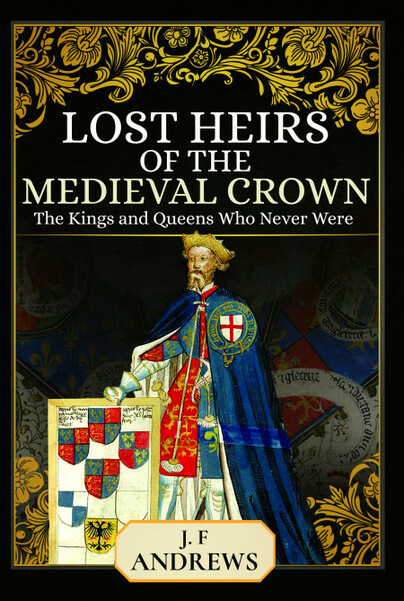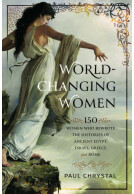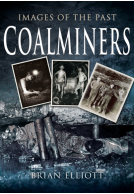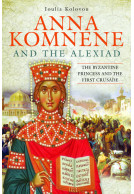Lost Heirs of the Medieval Crown (Paperback)
The Kings and Queens Who Never Were
Imprint: Pen & Sword History
Pages: 216
ISBN: 9781399020312
Published: 30th April 2025
(click here for international delivery rates)
Order within the next 2 hours, 3 minutes to get your order processed the next working day!
Need a currency converter? Check XE.com for live rates
| Other formats available | Price |
|---|---|
| Lost Heirs of the Medieval Crown Hardback Add to Basket | £13.99 |
| Lost Heirs of the Medieval Crown ePub (10.8 MB) Add to Basket | £6.99 |
When William the Conqueror died in 1087 he left the throne of England to William Rufus … his second son. The result was an immediate war as Rufus’s elder brother Robert fought to gain the crown he saw as rightfully his; this conflict marked the start of 400 years of bloody disputes as the English monarchy’s line of hereditary succession was bent, twisted and finally broken when the last Plantagenet king, Richard III, fell at Bosworth in 1485.
The Anglo-Norman and Plantagenet dynasties were renowned for their internecine strife, and in Lost Heirs we will unearth the hidden stories of fratricidal brothers, usurping cousins and murderous uncles; the many kings – and the occasional queen – who should have been but never were. History is written by the winners, but every game of thrones has its losers too, and their fascinating stories bring richness and depth to what is a colourful period of history. King John would not have gained the crown had he not murdered his young nephew, who was in line to become England’s first King Arthur; Henry V would never have been at Agincourt had his father not seized the throne by usurping and killing his cousin; and as the rival houses of York and Lancaster fought bloodily over the crown during the Wars of the Roses, life suddenly became very dangerous indeed for a young boy named Edmund.
In ‘Lost Heirs of the Medieval Crown’, JF Andrews distills what could have been insanely complicated political and genealogical history into easy-to-follow stories of British royalty who came very close to sitting on England’s throne, but were denied by rival royals, sexist standards of the day, unfortunate mishaps, outright misadventure, or disease. These tales are highly entertaining even as they illicit a cringe—both because these unfortunates (some of whom were highly capable and compelling candidates) were real people, and because it’s achingly relatable to see someone put everything on the line for a high stakes opportunity, only to fall short. In some cases, these poor souls didn’t even seek power, but were thwarted again and again in their efforts to just live a nice life because being born with royal relatives was (quite literally) a double-edged sword.
NetGalley, Katie Winn
What I appreciated most was JF Andrews’ ability to, as I said earlier, distill these histories down to their relative points, and keep them succinct so I never felt I was being bogged down by data, nor given too little. I walked away feeling I knew as much as I needed about each individual royal, but also had avenues of research to pursue if I wanted to delve further into a particular generation’s shenanigans. Not once did I feel bored, the narratives never dragged, and I left each chapter eager to read about the next generation of royal unfortunates.
People who habitually consume media about Britain’s royalty will recognize some of the names in this book—like Edward V and Richard, the Princes in the Tower. But I was pleased to see that there were other royals that I was less familiar with being brought out of obscurity—such as Empress Matilda and Edward of Woodstock (known primarily as “the Black” by historians and touted not so much as an almost-king but as one of Britain’s greatest knights). Furthermore, showing the succession in terms of who didn’t get the throne and why helped to show angles of history that made me question who I would have really supported in some of these conflicts.
All-in-all, a quick and highly satisfying read for anyone who enjoys stories about England’s outrageous and tumultuous royal history.
With Lost Heirs of the Medieval Crown, author JF Andrews provides a fascinating study of the also-rans and almost-made-its of medieval history; those children of the kings of England who died before they could claim their birth-right, or were passed over due to the dynastic squabbles of the Norman and Plantagenet dynasties that ruled England from the Norman Conquest in 1066 to the advent of the Tudor age.
HISTORY… THE INTERESTING BITS!
From the battles of Robert Curthose, eldest son of William the Conqueror, to the tragic lives of the Yorkist heirs, Edward V, Edward of Middleham and Edward Earl of Warwick, Lost Heirs of the Medieval Crown is a thoroughly engaging read, examining the lives of the heirs who were unable to claim their birthright, imprisoned for their royal blood, died before their time, or died in the attempt to claim the throne. Each individual story is brought into one volume, and demonstrates the struggle for power and supremacy in medieval England.
Beautifully written and well researched, it is an engaging read.
Read the full review here
Lost Heirs of the Medieval Crown is an interesting book that covers quite a few people. It’s very easy to read and has a nice flow to it. I really enjoyed reading it, despite it having so few women in it. Overall, I’d highly recommend it.
History of Royal Women
Read the full review here
Although we can’t change history, we can at least try to understand it; this book makes sure we will have a lot of fun along the way.
Tulsa Book Review
Read the full review here
The book is well written and some might find royal history a bit confusing as half of them have the same names or it’s hard to think how they are all linked but the author does a great job here. In that at the start of each chapter they a little family tree in order for it all to make sense for you. So if you find this subject a bit hard to read, don’t fob it off, give it a go because the author has done a great job in writing it clearly and informatively. I would recommend this book and give it a well-earned 4 out of 5 stars.
UK Historian
This was quite interesting. I enjoyed delving deeper into the possibilities of others who could have reigned over England.
NetGalley, Makenzie Erickson
Medival history is full of death and uncertainty. Death did not discriminate from poor or rich when it came to who lived or died. In fact, the path to the crown could often be more deadly than those who did not have such high ambitions. Whether accidental, sickness or downright homicide, death could come in all forms.
A Tale of Two Pages
Each chapter in this book starts out with a breakdown of the family, who fits where, and what was going on at the time. All of this plays into each of the chapters that will follow. The bloodiest dynasty in medieval history was not coined without cause, and this book breaks that down.
I really enjoyed the read. Each of the characters was familiar to me, through historical studies. However, the breakdown and clarification on a lot of smaller details were quite helpful. The chapters were not super long, which kept me engaged and attentive throughout the entire read. I was impressed with the amount of research, and the depth of the knowledge that the author portrayed in their writing.
If you enjoy history, I definitely recommend this book!
Read the full review here
If you like history you'll love this book - and no doubt you'll have your own opinion as to which of the heroes and villains would have made good monarchs.
Lost Cousins
Read the full review here
I found this book rather informative. Andrews’ writing is enjoyable and is easy to follow. This book really makes you wonder what if these lost heirs became kings and queens, how different history would have been. If you want to read an intriguing book about some mysterious men and women in history, I highly recommend you read, “Lost Heirs of the Medieval Crown: The Kings and Queens Who Never Were” by J.F. Andrews.
Adventures of a Tudor Nerd
Read the full review here
An original and seminal work of simply outstanding and documented historical scholarship, "Lost Heirs of the Medieval Crown: The Kings and Queens Who Never Were" is further enhanced for academia with the inclusion of illustrations, a list of abbreviations, twenty-seven pages of notes, a four page bibliographical listing of suggestions for further reading, and an eight page index.
Midwest Book Review
Read the full review here
This is an interesting approach to the history of the English monarchy, and a reminder that this was a ruthless period, in which failure to secure your inheritance could be fatal!
History of War
Read the full review here
Rating: 5 out of 5 stars
NetGalley, Sally Hinchliffe
If you love history then you'll love this book. For those people who know a little about history but need some gaps filling in then it's ideal, for those people who know their Kings and Queens of the medieval period but know little about how and why they ended up on the throne it's ideal. For all those people who turn to the internet to find out more about a historical character they've read about in a fiction book and want to know more it's ideal. It's a book I'll be going back to time and time again.
Rating: 5 out of 5 stars
NetGalley, Jen Lynch
A fascinating look at those people who narrowly missed out on the throne. Highly recommended to anyone interested in British history.
The author's knowledge of the Medieval period in these islands shines through as he or she takes us on a journey through the minefield of opposing factions fighting for the crown of England. Authoritative, educational and extremely entertaining.
Books Monthly
Rating: 5 out of 5 stars
NetGalley, Becky Laney
So I loved how each chapter started with a family tree. I loved how clearly it was written and organized. The genealogy of the royal family COULD be a super-tangled mess, but, the author was great in keeping the flow going and explaining how all the pieces fit together. I loved the stories.
One of my favorite time-wasting daydreams is imagining the PERFECT book that I'd love to read. It would be a series of novellas or short-stories possibly. Each would be set in an alternate world with a different what-if question answered. It would span the centuries. Each what-if would be based on a matter of succession/rule. I've been imagining this book for years now--probably five or more. So when I saw this book, it was like HALF a dream at least had been realized.
This is definitely one of the best books I've read this year. Many of us can recite the names of kings and queens who occupied the throne in medieval England but how many of us can remember the names of people who came very close to being crowned? Their lives and fates are no less interesting, and I'm glad they stepped out of the shadows in this fantastic book.
GoodReads, ConstantReader
There are biographies of seventeen people, men and women, who were heirs to the crown but never became kings and queens. The book starts with Robert Curthose & William Clito (Chapter 1) and ends with Edward V (one of the "Princes in the Tower"), Edward of Middleham (Richard III's son) & Edward of Warwick (Chapter 10).
My favourite chapters were those about William Adelin & Empress Matilda, Eustace, William & Mary of Blois and the ones covering the succession during Wars of the Roses (Chapters 2, 3, 8, 9, 10).
The author is very knowledgeable about history of medieval England but she never assumes that readers know everything so she explains terms and intricate politics of the period very well. It's a rare skill to tell a story as complex as this one without being tedious, and J.F. Andrews managed to capture my attention - I couldn't stop reading. This book is a page-turner if you are lover of medieval history. I will certainly look for more titles from this author.
I loved reading about these figures in search of the power that was customarily legally theirs. Many had bad luck, some were unprepared for the events that brought other relatives to the throne, some would surely have been great kings, like Edward the Black Prince, who died before his father Edward III, as written above himself already an excellent king. Who knows how the story would have been with these alternative kings we can ask ourselves, but this is not an ucronic book, the facts narrated are extremely exciting and have actually happened.
Old Barbed Wire Blog
Read the full Italian review here
Rating: 5 out of 5 stars
NetGalley, Amanda Richardson
Lost Heirs of the Medieval Crown was a thorough look into historical queens. I have a bit of an obsession with reading/learning all I can about medieval people and historical figures. This book was a great insight into the lives of the queens who ruled after William the Conquerer. Very educational.
This book is an excellent overview of the "might have been" rulers of England from the time of William the Conqueror to Henry VII. The characters portrayed suffer different fates, it's a very interesting way to look at English history of this period.
NetGalley, Janet Perry
A really interesting look at the other members of the monarchy through the Middle Ages. A great start to see them and the family dynamic through war, politics, debt and more. A good read for those who like the history of kings and queens or English history between 1060 and 1400s.
NetGalley, Alexandra Roth
This is is a good overview of several potential heirs to the English crown and what happened to them. I liked the detail in the book and would recommend it.
NetGalley, Shelly Myers
I had never heard of most of these "almost-rulers" -- with the exception of the Princes in the Tower and the Black Prince -- and it was interesting to read how the vicissitudes of fate led some people with royal blood to lose the crown, and sometimes their life!
NetGalley, Janette Forman
Good survey of the also-rans of the medieval English succession--the heirs displaced by civil war, who died before their royal fathers, the incidents of matrilineal descent (no Salic law in England), legitimized bastards and the overall theme that if one could seize the throne and hold it, the church and the law would come up with ways to justify it and legalize it.
NetGalley, Margaret Sankey
Lost Heirs of the Medieval Crown is an engaging study of exactly that. Taking the reader from the years after the Norman Conquest until the beginning of the Tudor era, there is much to learn about those who should have been king or queen had happenstance been a little different.
NetGalley, M J Porter
The author has an engaging writing style, and if, every so often, the opinions offered are purely based on the author's personal preference, it can be overlooked, as most historians will always have a personal favourite, or enemy from the time period that they study, and the author does make it clear when offering a personal opinion.
It is a very readable book, and I particularly enjoyed reading about Lady Constance at the beginning of the 1400's (as I've just read a fiction book about her). Neither does the author shy away from such difficult topics as the murder of the lost heirs, and is aseven handed when recounting the lives of the Black Prince, as those who suffered at the hands of over-mighty uncles.
This will make a nice little addition to anyone's history shelf. It is, as I mentioned, a very readable narrative on those who came so close and yet lost it all .... "there are very few happy endings ...".... The chapters are easy to read and the narrative not overly cumbersome or dry. There are extensive notes for those who wish to read further - I have quite a few of these resources myself!
NetGalley, Melisende d'Outremer
New insights into ancient history or why family is always and everywhere exciting. There are many new perspectives and interesting information about the "not so important" persons in England's succession to the throne. Very interesting, especially for "foreigners", to whom this side of history is largely inaccessible.
NetGalley, Nureeni Lem
I've read the stories of the royals who were "bypassed," but only as an aside as the monarchs who took power in their places were the focus of the stories. I stumbled upon this book and thought it would provide a different perspective, and it certainly did succeed at that. They're no longer just names in a history book - they're actually the focus of one for a change. I definitely learned a lot and it was an enjoyable read as well.
NetGalley, Jesse Lewis
About J F Andrews
J. F. Andrews is the pseudonym of a historian who has a PhD in Medieval Studies specialising in warfare and combat. Andrews has published a number of academic books and articles in the UK, the USA and France, and was one of the contributors to the Oxford Encyclopaedia of Medieval Warfare and Military Technology (Oxford University Press, 2010).
Andrews is also active in public engagement with history, having written several historical novels and contributed popular history articles to blogs and magazines. Andrews runs a highly regarded website offering background information on many aspects of medieval life, which is consulted by a wide range of historians, students and historical writers.
Death of Robert, Duke of Normandy
3rd February 1134
Robert, Duke of Normandy died on 3 February 1134 at Cardiff Castle, Glamorgan. The eldest son of William the Conqueror, Robert was known as Robert Curthose for his whole life – “curthose” meaning “short-legs” due to his height. He was a hero of the First Crusade on his return from the Holy Land but, upon reaching England, was told the news of his father’s death, and that, for the second time in his life, had been beaten to the crown by his younger brother. The rest of his life would see him in conflict with this brother, King Henry I.















